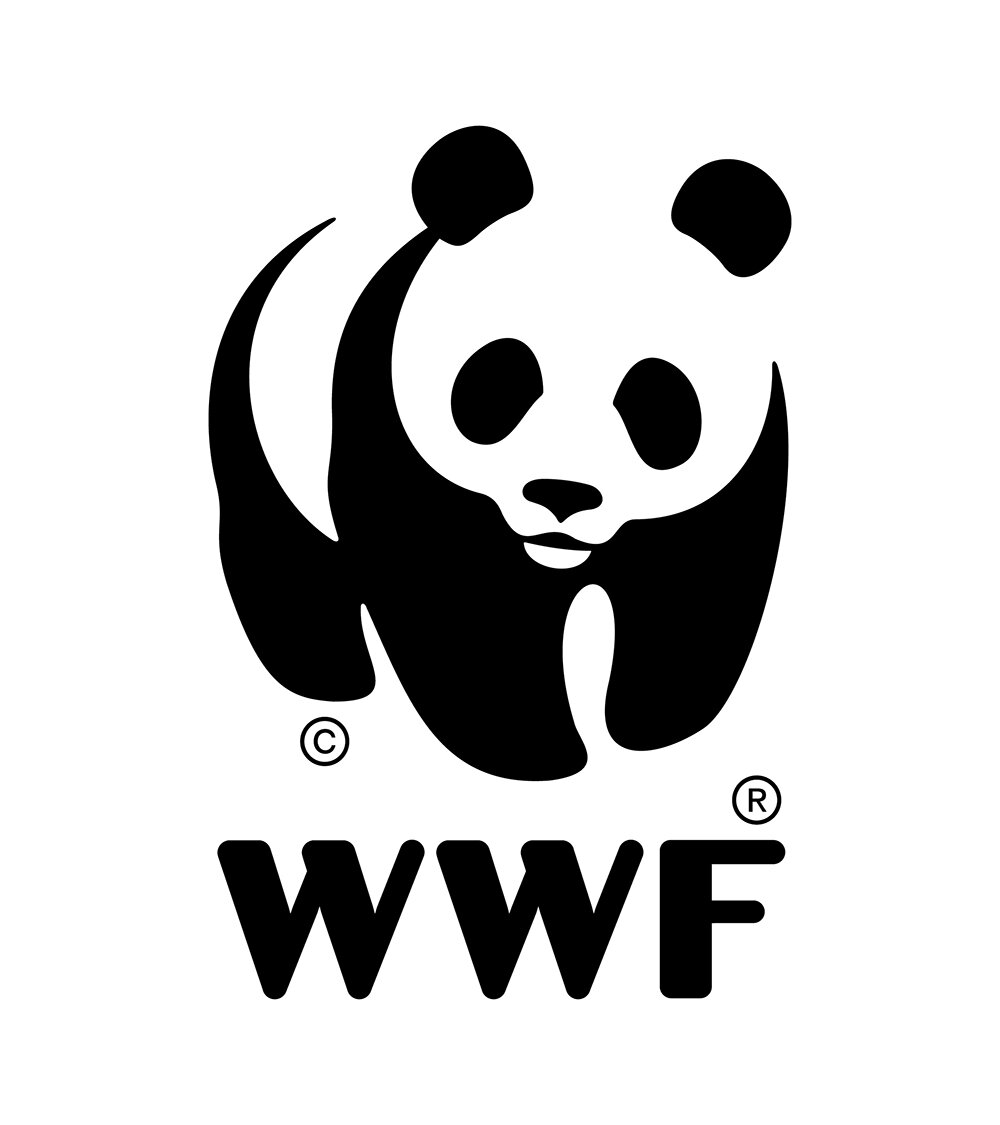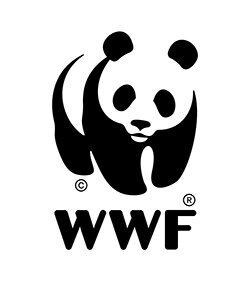Helping support volunteers dedicated to rescuing entangled whales in Mexico
© Astrid Frisch ECOBAC
Eduardo Nájera-Hillman, Coordinator of Seascapes for WWF-Mexico studying gray whales. ©Eduardo Nájera-Hillman
Every winter, thousands of humpback, blue, and gray whales visit Mexico’s warm waters to mate, give birth, and raise their young. This makes the region the ideal location for Eduardo Nájera-Hillman, Coordinator of Seascapes for WWF-Mexico. Eduardo’s expertise lies in designing and implementing conservation actions to strengthen policies for the protection of globally significant marine species and ecosystems.
As human activities escalate throughout the ocean, whales in Mexico – and around the world – face numerous threats, including ship strikes, underwater noise, plastic pollution, and impacts from the climate crisis. But the deadliest threat is entanglement in fishing gear – estimated to kill 300,000 cetaceans every year. For some species, like the critically endangered North Atlantic right whale, fishing gear entanglements are the leading cause of serious injury and death.
Eduardo Nájera-Hillman
“We know that bycatch is one of the main threats to whales and other cetaceans globally. Given that Mexico accounts for 40 of the 89 species of cetaceans in the world, we have a big responsibility to take action to halt this threat,” says Eduardo Nájera-Hillman. “When a whale becomes entangled, it can cause deep wounds, infections, or amputation, which can restrict mobility, feeding, and future reproduction. If left unnoticed or unreported, the whale can suffer a long, agonising death.”
Rescuing whales from entanglement is no easy feat. An entangled whale is under incredible stress and, as a result, its movements become unpredictable. This combined with its immense size and power makes rescuing whales a complex, difficult, and highly dangerous job. Approaching an entangled whale must be done carefully. Crews need to be properly trained to use the necessary equipment and quickly assess and act on the situation. Fortunately, in many countries around the world, dedicated teams of volunteers are standing by, ready to respond.
In Mexico, the Whale Disentanglement Network, known as RABEN (Red de Asistencia a Ballenas Enmalladas) is a leader on this front. RABEN started off as a small team, created by ECOBAC (Ecología y Conservación de Ballenas), as part of the International Whaling Commission’s (IWC) Global Whale Entanglement Response Network. Since its conception ten years ago, RABEN has grown into an internationally recognized network, applauded for its many successful rescues.
“In each whale rescue, there is a mix of feelings, but the first is uncertainty because we don’t know if we are going to be able to disentangle the whale, or in what condition it will be,” says Belem Valencia-González, a volunteer from RABEN in Los Cabos. “Many emotions arise – nerves, anguish, enthusiasm – but mostly we must keep in mind the protocol and safety measures. The best feeling is the satisfaction of knowing that the whale will be able to continue being free, with the hope of living for many more years.”
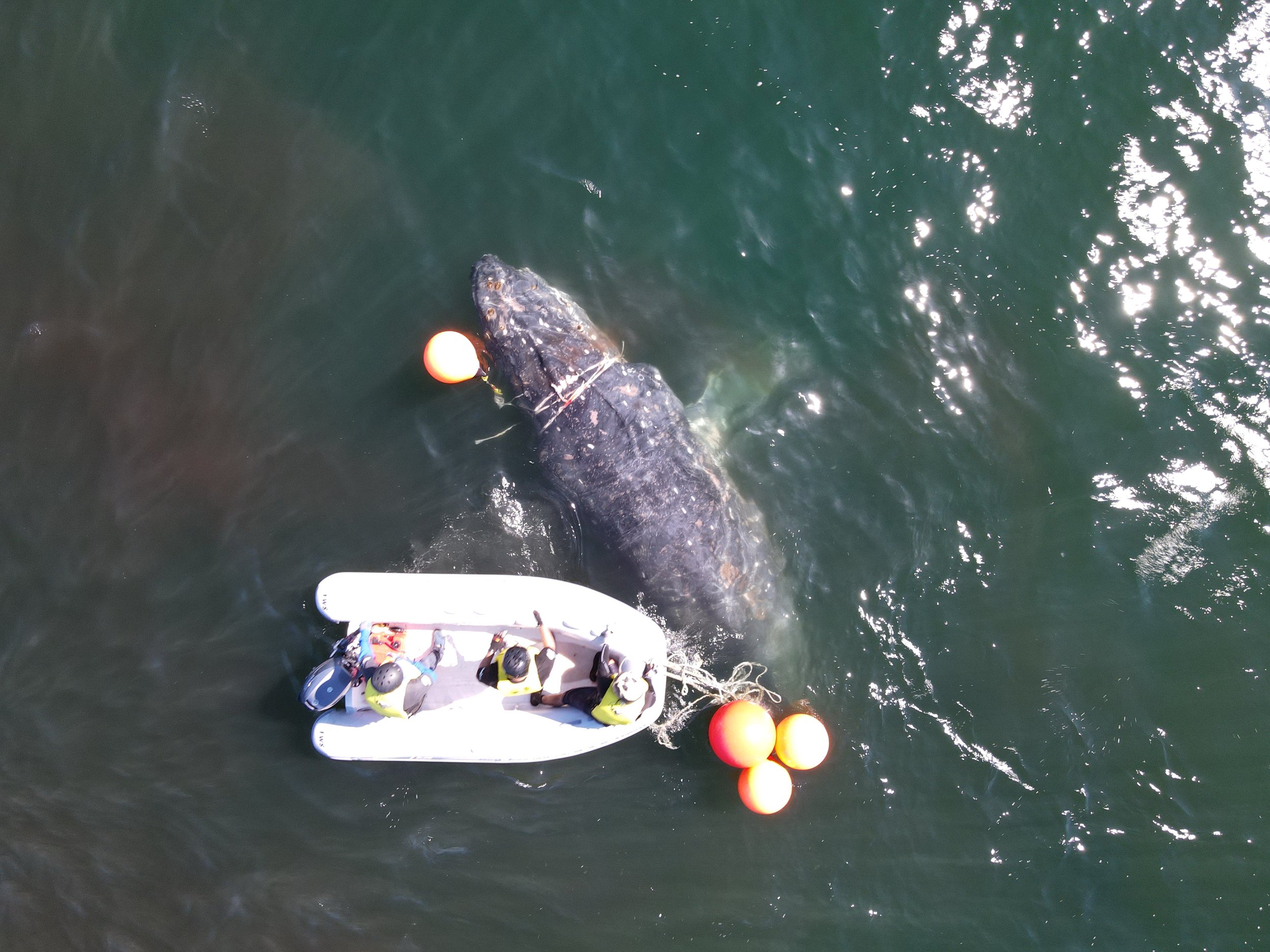
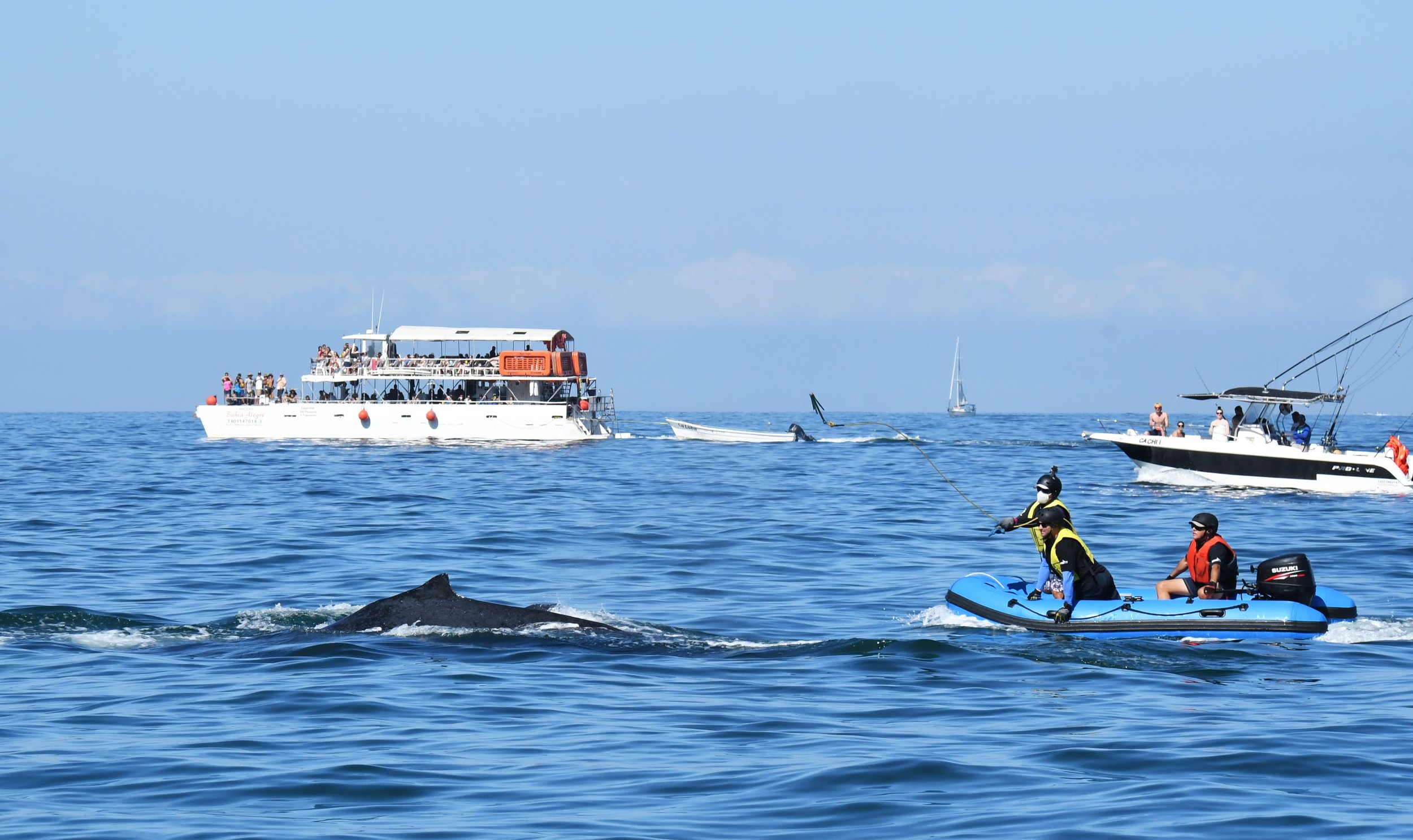
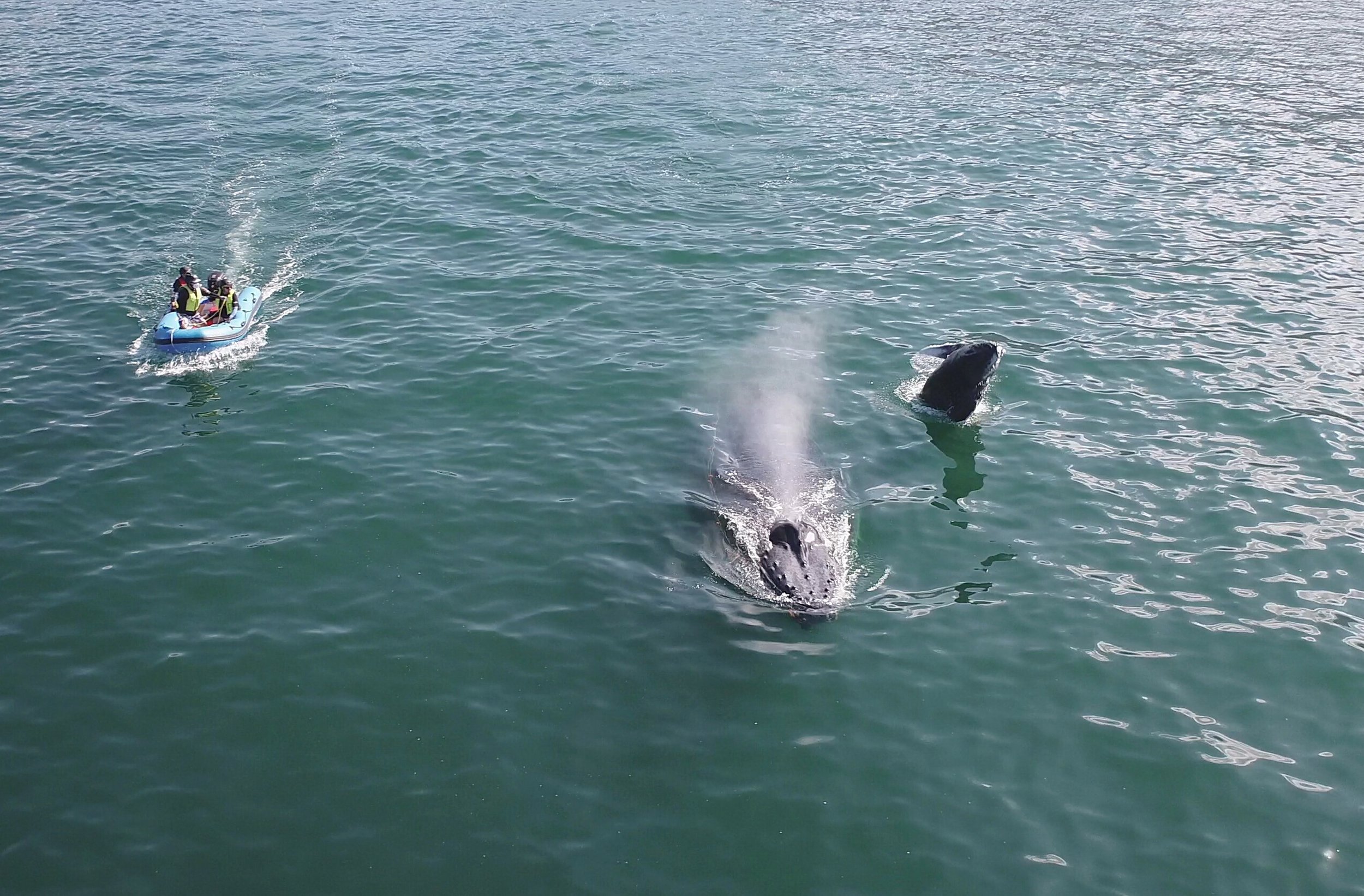
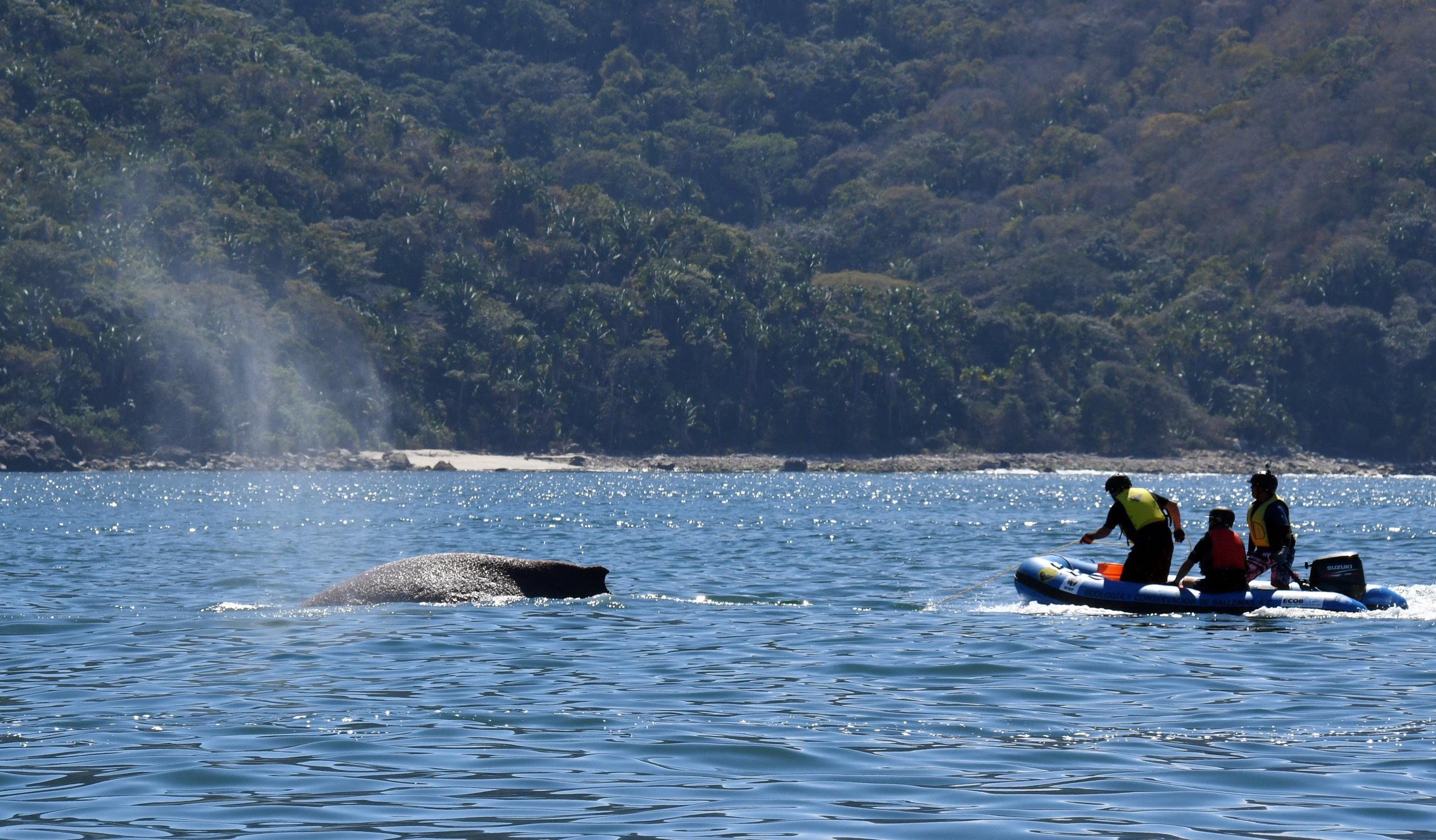
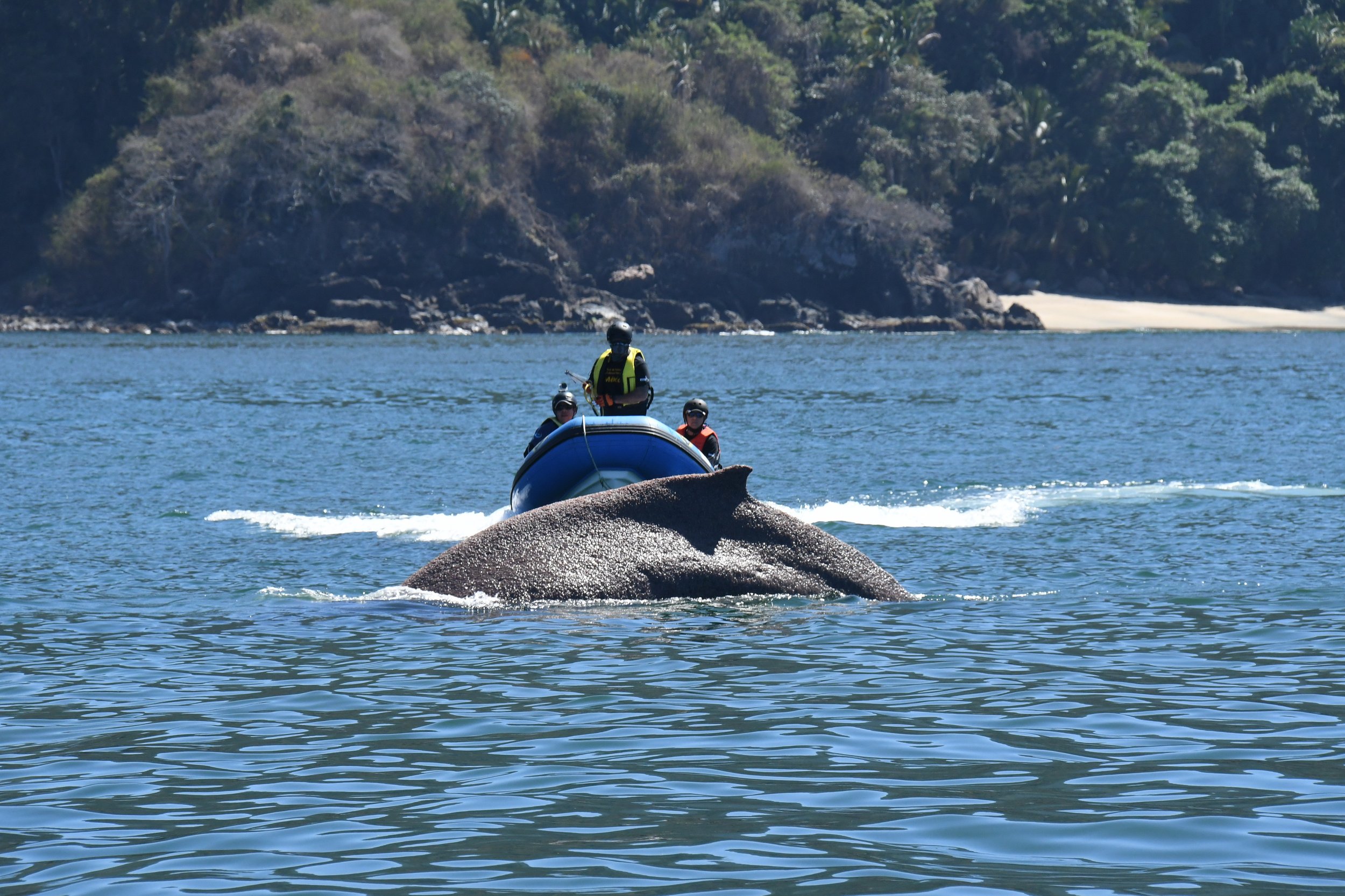
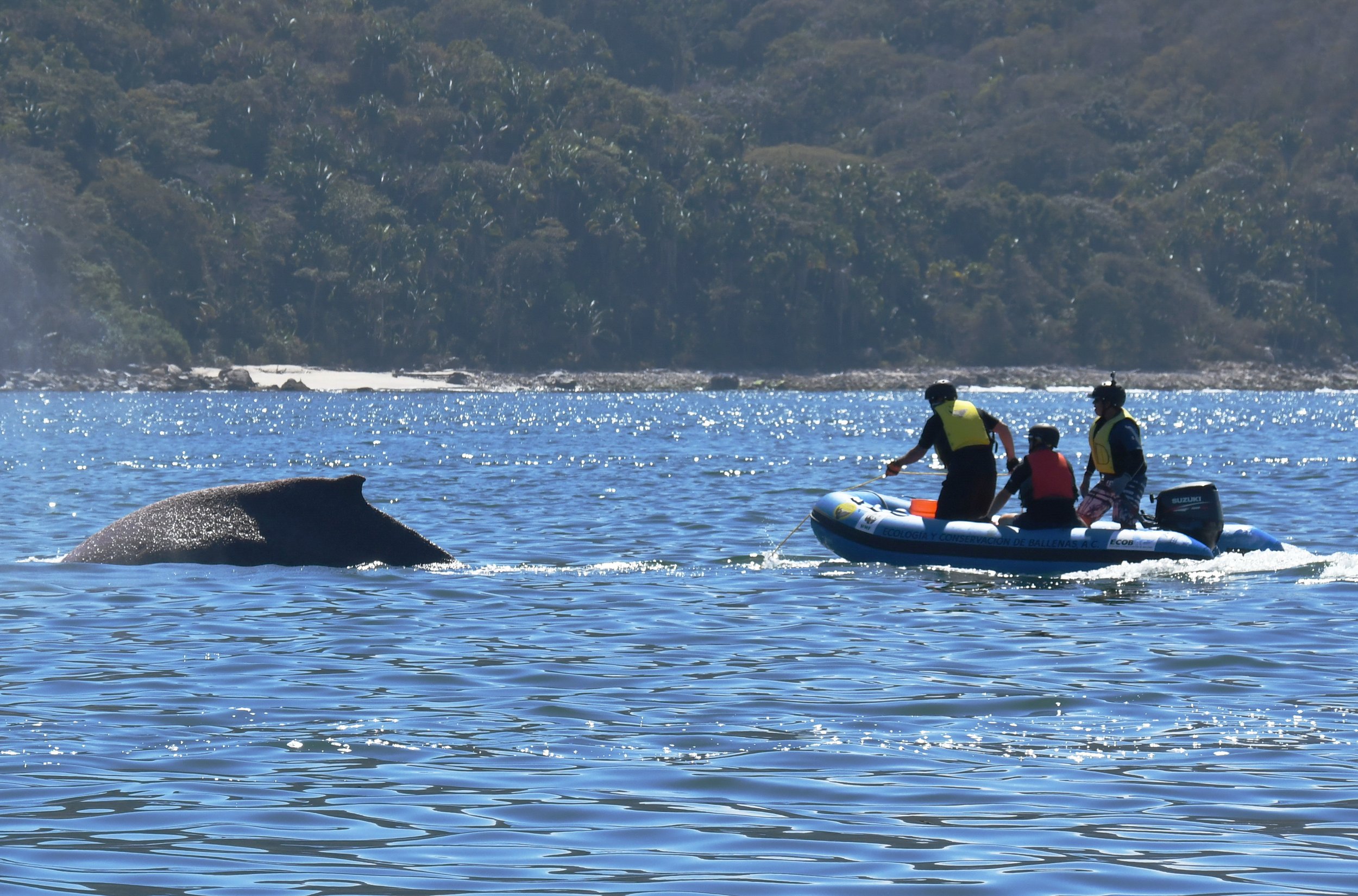
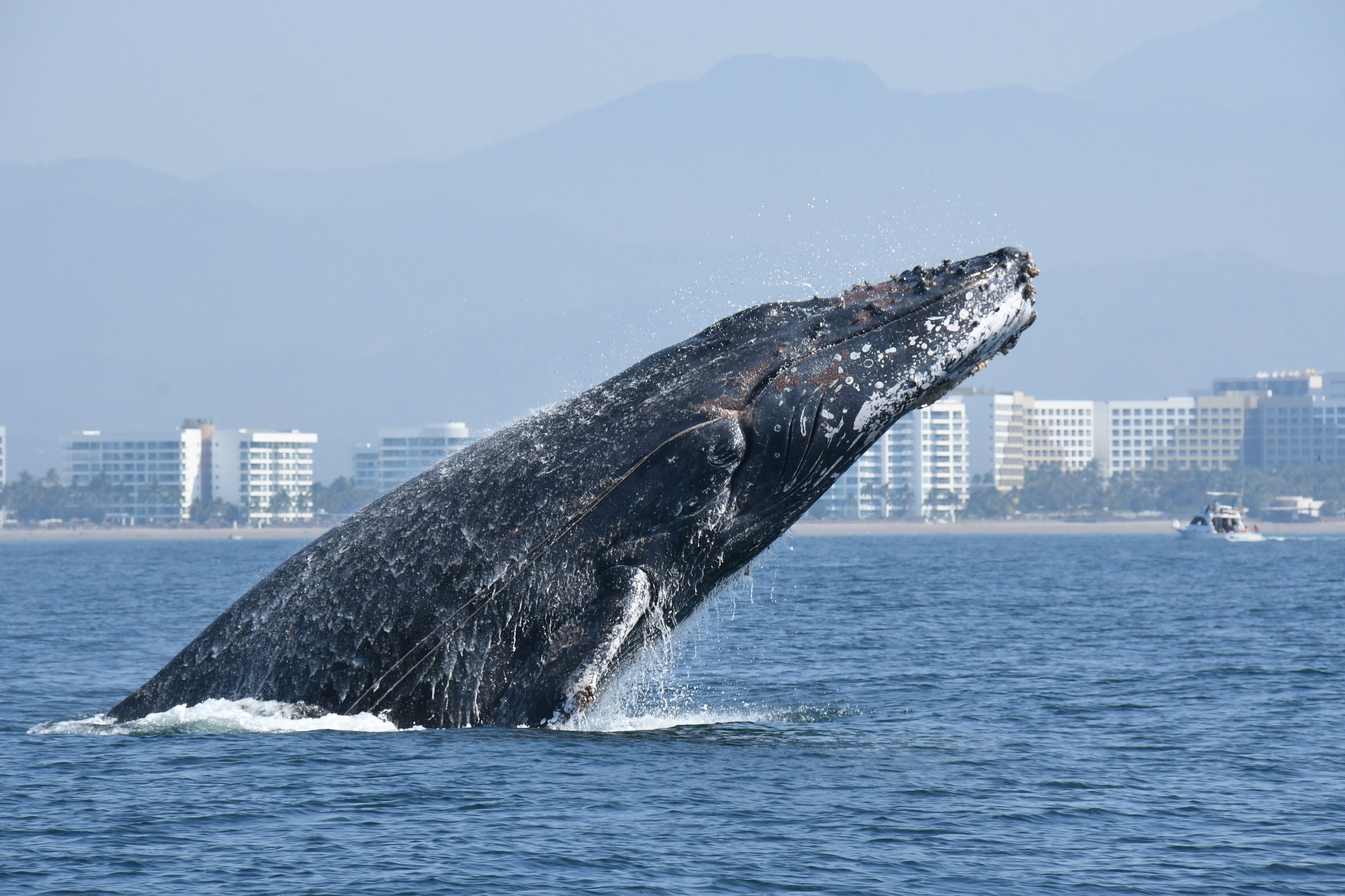
“There are some scenarios in which you can’t continue the rescue due to adverse ocean conditions, but knowing that we tried, and applying what we learned for future rescues, gives us faith to continue,” adds Belem Valencia-González. “The strategy in each situation is always different, but the love and commitment are the same. Our mission is to save these marine giants, so they can continue to swim across seas and oceans.”
Spanning the Mexican Pacific Coast, 15 highly trained teams of disentanglement experts and 180 volunteers are equipped with specialized gear to assist in the rescue of entangled whales. Team members include personnel from the Mexican Navy, harbour masters, wildlife rangers, whale-watching tour operators, universities, and non-profit organisations. Since 1996, 245 entanglements of six whale species were recorded, with humpbacks affected in 88 per cent of the cases. During the 2020-2021 season, RABEN was able to successfully free 12 whales from life-threatening entanglements and during the 2021-2022 season, they released seven. This last season, 2022-2023, they were able to rescue 13 whales.
“WWF-Mexico has created a partnership with ECOBAC – which leads, coordinates and trains RABEN’s volunteers, all along the Mexican Pacific. So far, we’ve trained 112 volunteers who dedicate their lives to rescuing these whales, without pay – on protocols to ensure they have the training and equipment to keep both the rescuer and the whale safe,” says Eduardo Nájera-Hillman. “To help future mitigation measures, they are trained to record data in the IWC database on each entanglement, including the location and species. They also raise awareness on this growing threat to whales, by conducting entanglement prevention workshops in local communities.”
Around the world, WWF and partners continue to find solutions to bycatch by developing and implementing safer fishing gear, improving practices with fisheries, pushing for stronger bycatch legislation, and integrating conservation science into effective fisheries management. While efforts to eliminate bycatch are the priority, it will take time and a global concerted effort to tackle the crisis. Until that’s achieved, dedicated teams of volunteers are doing vital work to minimise its impacts.
“The long-term goal is to prevent entanglements from happening in the first place,” says Eduardo Nájera-Hillman. “In the meantime, the work this network does every day is imperative to the long-term survival of these populations.””
